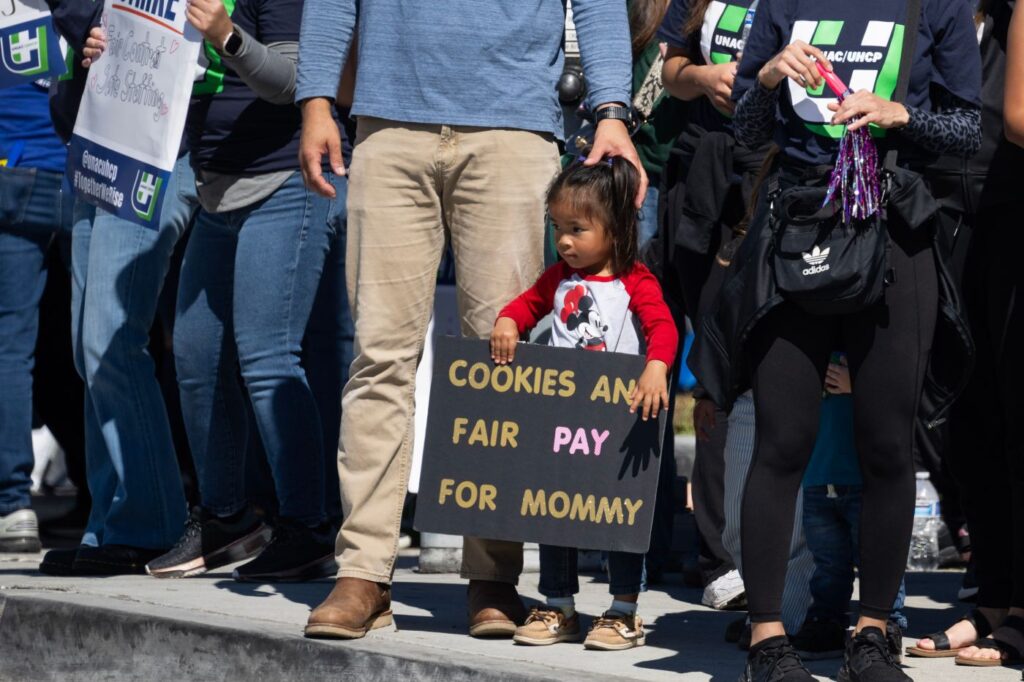
More than 31,000 nurses and healthcare professionals concluded a five-day strike against Kaiser Permanente on October 19, 2025, without reaching a labor agreement. The strike, which began on October 14, involved workers primarily from the United Nurses Associations of California and the Union of Health Care Professionals, who protested for better wages and working conditions across multiple states, including California, Oregon, and Washington.
Throughout the strike, thousands of workers picketed at various Kaiser facilities, including the Downey Medical Center in Los Angeles County and the Kaiser Permanente San Diego Medical Center in Kearny Mesa, where over 2,500 healthcare professionals participated. The action was unprecedented for Kaiser unions and was fueled by expired labor contracts that had lapsed on September 30 and October 1.
Negotiations between Kaiser officials and union leaders are set to resume on October 22 and 23. A representative from the steelworkers’ union, which includes around 8,600 vocational nurses and medical assistants, mentioned that additional discussions are planned for October 28 and 29 if this week’s meetings do not produce satisfactory results.
Kaiser spokesman Terry Kanakri stated that while the focus of negotiations will be on economic issues, staffing concerns are also significant. “Wages are the reason for the strike and the primary issue in negotiations,” Kanakri explained. Kaiser has offered a 21.5% pay increase, while the union initially sought a 38% raise over four years and has adjusted its request to a 25% increase.
The healthcare provider has emphasized its commitment to maintaining high-quality, affordable care during these negotiations. Kanakri noted that as healthcare costs continue to rise, Kaiser aims to keep coverage accessible while attracting and retaining top talent within its organization.
During the strike, Kaiser brought in thousands of replacement staff from around the country to fill critical roles. Temporary workers were reportedly compensated between $78 and $130 per hour, according to interviews with professionals hired through AMN Healthcare Services Inc.
The strike also impacted other healthcare professionals, including around 4,000 workers represented by the Oregon Federation of Nurses and Health Professionals, which resulted in the temporary closure of some Kaiser pharmacies. Additionally, Local 7600 of the United Steelworkers Union, which represents a diverse group of healthcare workers, joined the strike, amplifying the labor action’s impact on hospital operations.
While not participating in the strike, Locals 324 and 770—representing about 2,200 pharmacy assistants, technicians, and clinical lab scientists—voted on October 15 to authorize a strike due to unfair labor practices. Although no strike date has been set, these unions indicated that a second wave of protests could follow if negotiations remain unresolved.
Brent Beltran, a spokesperson for UFCW Local 135, noted that his union, which includes 350 workers in San Diego County, also voted to authorize a strike. This could lead to a notice for a potential strike following the expiration of their contract on October 31.
Kaiser Permanente operates extensively across the Western United States, with 608 medical offices and 40 hospitals. In Southern California alone, the organization employs nearly 91,200 individuals and serves approximately 4.9 million members.
The conclusion of this strike marks a pivotal moment for labor relations within Kaiser, highlighting the ongoing challenges in the healthcare sector as workers advocate for better compensation and working conditions in a rapidly changing industry.






